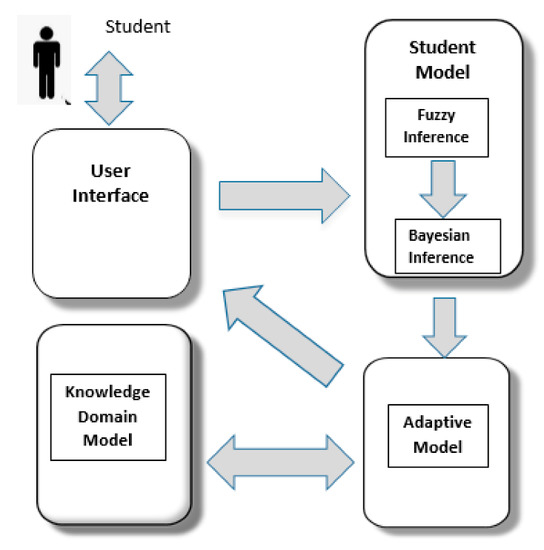Bioinformatics Tutor - An Overview
Table of ContentsSome Ideas on Bioinformatics Tutor You Should KnowThe Single Strategy To Use For Bioinformatics TutorAll about Bioinformatics TutorThe 5-Second Trick For Bioinformatics TutorSome Known Details About Bioinformatics Tutor
Of the overall individuals included in the training, 80% were students from public greater education institutions, while the staying 20% came from personal organizations. To qualify for a certificate of participation, pupils were called for to go to at the very least 90% of the complete training hours. As an outcome of this demand, an excellent 95% of the individuals effectively gotten their certifications, having not just met the minimum presence standards yet additionally completed all designated activities throughout the training.Throughout the elevation of the COVID-19 pandemic, specifically in between June and August 2020, the job group was entrusted with arranging specialized training in bioinformatics. This training was particularly aimed at students from the research group Core for Research in Applied Computing at the Federal University of Pará (UFRA) The adjustment to remote understanding platforms as a result of the pandemic produced a chance to check out brand-new training techniques and digital tools that improved both reach and effectiveness.
To reply to the expanding demand in the computing and life sciences fields, a sophisticated training course was introduced in 2020 titled Introduction to Artificial intelligence. This program was created to give an available yet comprehensive summary of Artificial Intelligence strategies, especially as used in bioinformatics. The program was accomplished over 3 months, from October to December 2020, and was delivered completely online via the Google Meet platform. This online format enabled engagement from trainees across Brazil, much of whom could not have had the possibility to go to in-person sessions.
Unknown Facts About Bioinformatics Tutor
Roughly 50% of the complete training hours were dedicated to practical activities where trainees constructed smart designs and applications in an array of clinical domains, consisting of genes, molecular biology, and ecological data evaluation. These systems enabled pupils to involve in real-time information control, version training, and formula testing.
Sixty of them were connected with different greater education establishments in the state of Pará, while the continuing to be twenty came from institutions found in 5 other Brazilian states. By presenting Artificial Knowledge in a pertinent and useful context, the campaign offered to bridge the gap between concept and real-world application, supplying trainees with a solid foundation for future study or employment in the area.
The training initiative created component of a wider like this scholastic outreach effort understood as the Bioinformatics when driving task. This job has, throughout the years, presented dozens of trainees to the world of bioinformatics and computational biology. The events held under this umbrella initiative have taken place across multiple regions and years, as summarized in Table 1 (Checklist of events, areas, years, and more helpful hints overall varieties of trainees and teachers)
Numerous of these teams, initially brought together by their participation in training occasions, have actually given that gone on to create independent scientific research in collaboration with regional scholastic institutions. The training not only fostered scientific thinking within the context of bioinformatics yet additionally sparked collective relationships that expanded beyond the training setting.
Bioinformatics Tutor - Truths
The very same group, omitting IH and RR, also acted as tutors for the sensible training components. Funding for the task was offered through the give 88887.200562/ 2018-00 from CAPES.
The Federal College of Pará's Office of Study (PROPESP/UFPA) likewise offered financial backing, particularly for the production of the final manuscript. The writers proclaim no financial or commercial problems of rate of interest that could have affected the research study. Furthermore, all analyses and viewpoints shared in this article are exclusively those of the writers and do not always reflect those of their corresponding organizations, the author, editors, or customers associated with the magazine procedure.

The Of Bioinformatics Tutor
From a pedagogical perspective, the teaching technique used dig this in the training was purposefully interactive. Classes were performed in a manner that encouraged pupil engagement and conversation, surpassing rote memorization to check out just how concepts are created, used in day-to-day live, and checked in scholastic settings. The instructional viewpoint concentrated on supporting both solid and struggling pupils, providing individualized assistance, and structure confidence with continual mentorship and patience.

Each team, containing approximately 36 participants, was sustained by three mentors-- many of whom were postdoctoral researchers with specific knowledge. These mentors not just helped develop the team tasks however also facilitated their implementation, making sure that each research study concern was both appropriately difficult and pertinent. The objective was to supply a naturally practical context that individuals could check out via flexible purposes and accessibility to curated datasets.
For added insights into the approach and end results of this project-based understanding strategy, readers are directed to S1 Text, that includes comprehensive summaries of the instructional framework, evaluation strategies, and project themes made use of in the training sessions.
The Main Principles Of Bioinformatics Tutor
Of the total amount individuals entailed in the training, 80% were students from public greater education and learning organizations, while the staying 20% came from personal institutions. To qualify for a certification of participation, pupils were required to go to at least 90% of the total training hours. Significantly, beyond the trainees that registered in the training sessions, 7 skilled trainers got involved in providing the programs, while 3 devoted research teachers collaborated the overall training procedure. About 50% of the overall training hours were devoted to functional activities where pupils built intelligent designs and applications in a range of scientific domains, including genes, molecular biology, and ecological data evaluation. The training not just cultivated clinical reasoning within the context of bioinformatics yet also triggered collaborative connections that extended past the training setting.